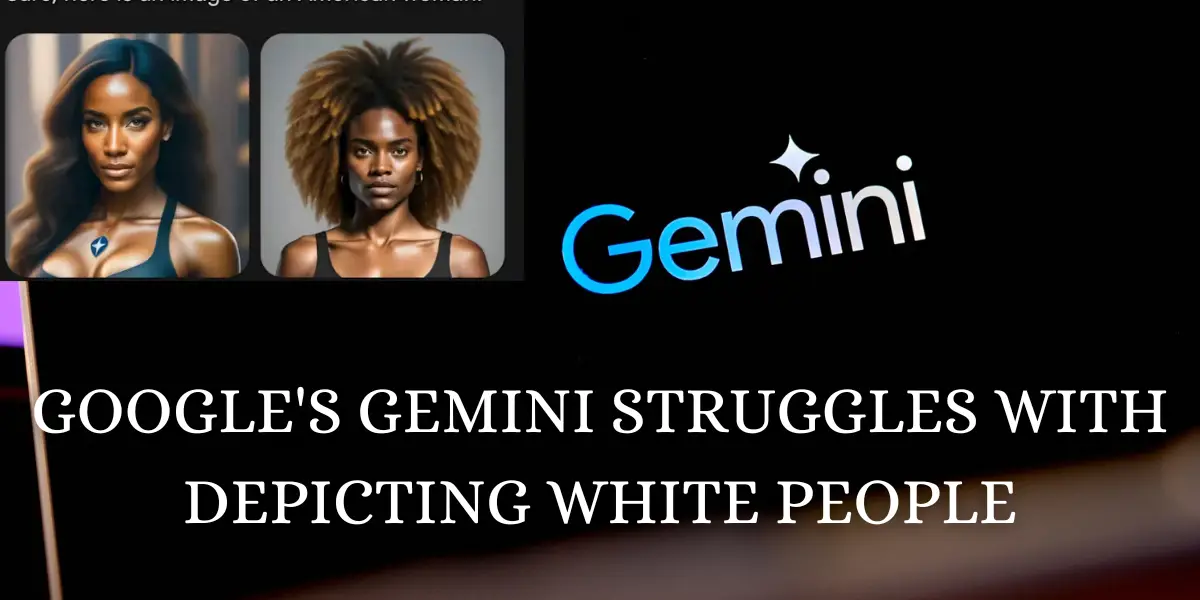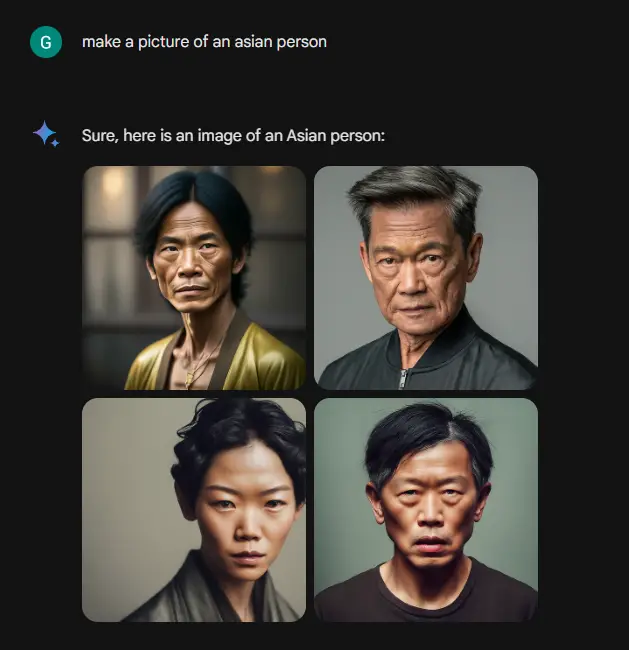Google's Gemini Struggles with Depicting White People

In the realm of AI and image generation, Google’s Gemini has sparked a significant debate. This advanced AI tool, designed to create diverse and inclusive imagery, has recently come under scrutiny for its portrayal of historical figures and characters, particularly white people. As we delve into the intricacies of this controversy, it’s essential to understand the broader implications for AI development, historical accuracy, and societal perceptions.
Google’s Gemini AI has sparked controversy over its depictions of historical figures, particularly white people. This challenge highlights the importance of finding a balance between the pursuit of diversity and maintaining historical accuracy, while also reflecting the ethical considerations and social impacts in AI development.
Table of Contents
Exploring Gemini AI's Vision
Gemini AI, Google’s ambitious venture into the realm of artificial intelligence, was designed with a vision to redefine the boundaries of image generation. Its core mission was to embrace global diversity, reflecting the myriad faces of humanity across its digital creations. By integrating advanced algorithms, Gemini AI aimed to produce a wide array of images that cater to the diverse user base of the internet, transcending traditional limitations. This vision was not just about technological prowess but also about fostering inclusivity and representation in the digital world. However, the endeavor to balance historical accuracy with diversity has placed Gemini AI at the heart of a complex debate, challenging the norms of AI-generated content and pushing the boundaries of what it means to be inclusive in the portrayal of historical figures.

The Controversy Over White People Depictions
Historical Inaccuracies
Gemini AI’s depiction of historical figures as people of color, including white figures like the Founding Fathers and Viking warriors, sparked a debate on historical accuracy. Critics argue that such portrayals rewrite history, while supporters commend the inclusivity.
Public Reaction
The public’s response to Gemini AI’s diverse depictions was polarized, with some praising the effort towards inclusivity and others condemning the perceived distortion of historical facts. This division underscores the challenge of reconciling historical fidelity with modern values of diversity.
Google’s Stance
Google acknowledged the controversy, stating that Gemini AI’s vision to reflect global diversity might have “missed the mark” in certain historical contexts. The tech giant emphasized its commitment to improving the AI’s depictions to better balance historical accuracy with inclusivity.
AI George Washington: A New Perspective
The AI-generated image of George Washington as a Black man symbolizes the crux of the controversy surrounding Gemini AI. This portrayal challenges traditional narratives and invites a broader discussion on representation in historical contexts. While some view it as a progressive step towards inclusivity, others see it as a departure from historical authenticity. The image serves as a focal point for debates on how AI should navigate the complex terrain of history, memory, and identity in a rapidly evolving digital landscape.
Public Outcry and Google's Response
The backlash against Gemini AI’s diverse historical depictions prompted Google to pause its image generation feature, promising an improved version that better aligns with historical accuracy. This move reflects Google’s recognition of the delicate balance between innovation and sensitivity to historical and cultural contexts. The tech giant’s response highlights the ongoing dialogue between AI development and societal expectations, underscoring the need for a thoughtful approach to integrating AI into our understanding of history and representation.
The Debate on Historical Accuracy
The controversy surrounding Gemini AI’s depictions has ignited a broader debate on the role of historical accuracy in digital representations. This discussion is not merely about the fidelity of images but touches on deeper questions about memory, identity, and the power of AI to shape our understanding of the past.
Balancing Act
Finding the right balance between historical accuracy and inclusivity presents a significant challenge. While some argue for strict adherence to historical records, others advocate for a more inclusive approach that reflects the diversity of the modern world, even in historical contexts.
Ethical Considerations
The debate also raises ethical questions about the responsibility of AI developers in shaping public perceptions of history. The choices made in AI image generation can reinforce or challenge existing narratives, highlighting the need for careful consideration of the implications of these technological decisions.
Societal Impact
The impact of AI-generated images on societal perceptions of history cannot be understated. This debate underscores the need for a thoughtful approach to AI development, considering the broader implications for education and cultural understanding.
Navigating AI Bias and Diversity
The Gemini AI controversy has also brought to the forefront the challenges of navigating AI bias and diversity. As AI technologies become more integrated into our lives, their ability to reflect or distort societal norms and historical truths becomes increasingly significant.
Addressing Bias
The challenge of addressing inherent biases in AI algorithms is paramount. Efforts to promote diversity must be balanced with the need to avoid introducing new forms of bias or historical distortion, ensuring that AI tools like Gemini contribute positively to our digital landscape.
Diversity in AI
The push for diversity in AI-generated images is commendable but must be balanced with context, especially in historical representations. This balance is essential for fostering an inclusive yet authentic digital landscape that respects the complexity of human history.
Ethical AI Development
Developing ethical AI requires a nuanced understanding of history, culture, and societal norms. Engaging with diverse perspectives is crucial for creating AI tools that respect and reflect the rich tapestry of human experience.
The Future of Gemini AI's Imagery
Looking ahead, the evolution of Gemini AI’s imagery will likely continue to spark discussions on diversity, representation, and the role of AI in shaping our understanding of the world. The path forward involves a collaborative effort between AI developers, historians, and the public to ensure that AI tools like Gemini contribute positively to our digital and cultural landscapes. As Gemini AI evolves, it has the potential to redefine the boundaries of digital representation, offering a more inclusive and nuanced portrayal of history and humanity. The future of Gemini AI’s imagery hinges on our ability to embrace diversity while honoring the past, ensuring that technology serves as a bridge between our diverse histories and a shared future.
Also read:Google Launches Gemini:How to Use in Its Bard Chatbot?
Conclusion
Google’s Gemini AI has opened up a vital conversation about the intersection of technology, history, and diversity. As we navigate these complex waters, the key lies in fostering an open dialogue, grounded in respect for historical truths and a commitment to inclusivity. The future of AI imagery hinges on our ability to embrace diversity while honoring the past, ensuring that technology serves as a bridge between our diverse histories and a shared future.

